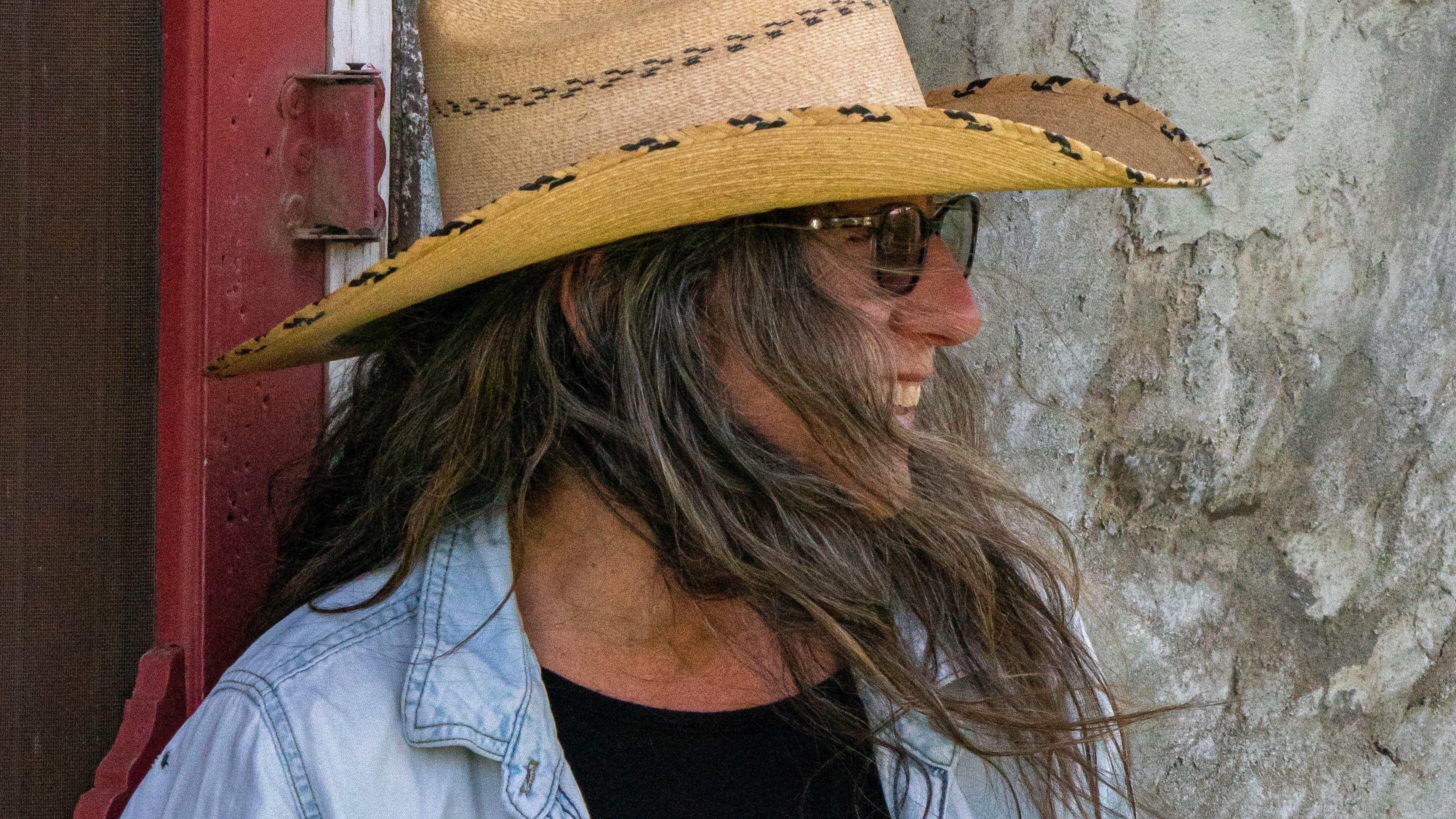The state of Oregon has had six poets laureate since 2006, when new funds became available to reinstate the position. That person is appointed by and serves “at the pleasure of the Governor.” Now, we also have our first Beat Poet Laureate, selected by the nonprofit National Beat Poetry Foundation…and definitely not serving at the pleasure of elected officials. St. Johns resident and community activist Mimi German is perhaps best known locally for sharing her poetry during City Council public testimony periods, where it wasn’t always welcome (particularly by Commissioner Chloe Eudaly).
But to German, who also works with and advocates for members of Portland’s houseless community, it was a form of protest, if not revolution—firmly in the Beat tradition.
“I’m an out-of-the-box poet, as I think people were in the ‘50s and ‘60s: Kerouac and the whole scene, Burroughs, Cassady, Ginsberg,” she says, “writing poetry against the state, against the system, in order to have what’s really important heard. For me, poetry is really about what is happening on the street level—what’s happening in local government, what’s happening for people who are suffering in the state and in the country. And I think that the people at the National Beat Poetry Foundation felt that in the work.”
The Beat Poet Laureate honors began in 2015 and include poets at the state, national and international levels. There are also several lifetime laureates, including musician David Amram (a peer and collaborator of Kerouac’s), Jami Cassady Ratto (Neal Cassady’s daughter), and Johnny Depp. Nominations can be made by anybody but typically come from within the community (“in order to be considered to be a Beat Poet Laureate, you must show interest in our group and social media pages,” according to the foundation’s website), with a committee of seven anonymous people, as well as past and present laureates, also participating in the selection process.
German’s first anthology, Beneath the Gravel Weight of Stars, came out in 2022, while her second, Where Grasses Bend—written over the past three years of protest, pandemic and rural isolation—is due out in September. She’s also co-editing an anthology that will feature the work of both housed and houseless poets.
“Whether you call it political art or political poetry, if it’s about the people, I feel that’s just really important,” German says. “To help somebody understand what it is that we are experiencing, I think that’s part of the job of an artist…if there is a job. Like, what is this ship that we are on? How do we understand that? And so we go to art. We go to music. We go to the poets.”
See the rest of Willamette Week’s Best of Portland 2023 here!
